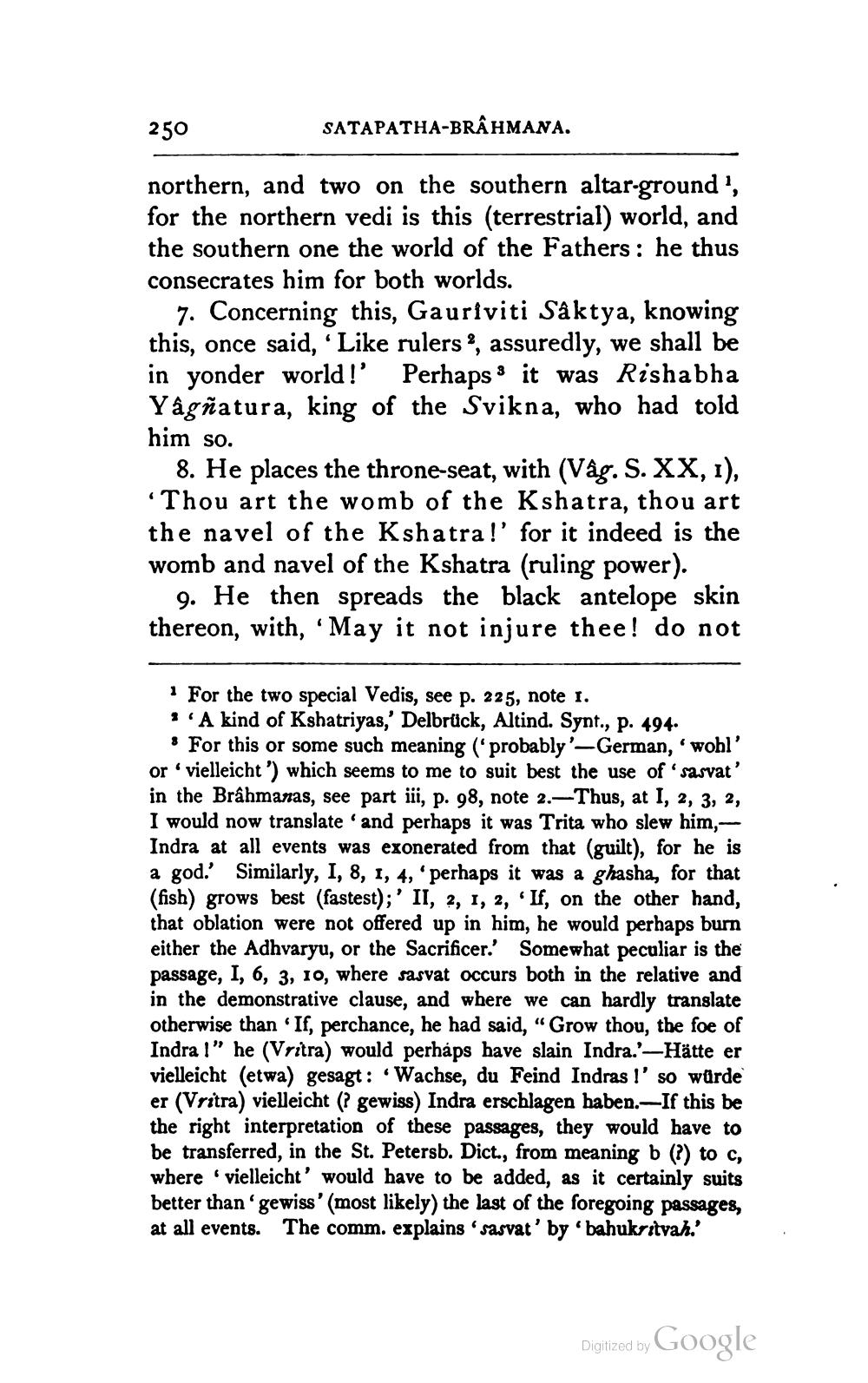________________
250
SATAPATHA-BRAHMANA.
northern, and two on the southern altar-ground', for the northern vedi is this (terrestrial) world, and the southern one the world of the Fathers : he thus consecrates him for both worlds.
7. Concerning this, Gauriviti Sâktya, knowing this, once said, 'Like rulers ?, assuredly, we shall be in yonder world !' Perhapss it was Rishabha Yâgñatura, king of the Svikna, who had told him so.
8. He places the throne-seat, with (Vág. S. XX, 1), 'Thou art the womb of the Kshatra, thou art the navel of the Kshatra!' for it indeed is the womb and navel of the Kshatra (ruling power).
9. He then spreads the black antelope skin thereon, with, May it not injure thee! do not
· For the two special Vedis, see p. 225, note 1. S A kind of Kshatriyas,' Delbrück, Altind. Synt., p. 494.
. For this or some such meaning (probably'-German, 'wohl' or vielleicht ') which seems to me to suit best the use of sasvat' in the Brahmanas, see part iii, p. 98, note 2.-Thus, at I, 2, 3, 2, I would now translate and perhaps it was Trita who slew him, Indra at all events was exonerated from that (guilt), for he is a god. Similarly, I, 8, 1, 4, 'perhaps it was a ghasha, for that (fish) grows best (fastest); ' II, 2, 1, 2, If, on the other hand, that oblation were not offered up in him, he would perhaps burn either the Adhvaryu, or the Sacrificer.' Somewhat peculiar is the passage, I, 6, 3, 10, where sasvat occurs both in the relative and in the demonstrative clause, and where we can hardly translate otherwise than If, perchance, he had said, “Grow thou, the foe of Indra !” he (Vritra) would perhaps have slain Indra.'-Hätte er vielleicht (etwa) gesagt: Wachse, du Feind Indras l' so würde er (Vritra) vielleicht (? gewiss) Indra erschlagen haben.-If this be the right interpretation of these passages, they would have to be transferred, in the St. Petersb. Dict., from meaning b () to c, where vielleicht' would have to be added, as it certainly suits better than' gewiss' (most likely) the last of the foregoing passages, at all events. The comm. explains' sasvat' by 'bahukritvah.'
Digitized by Google




